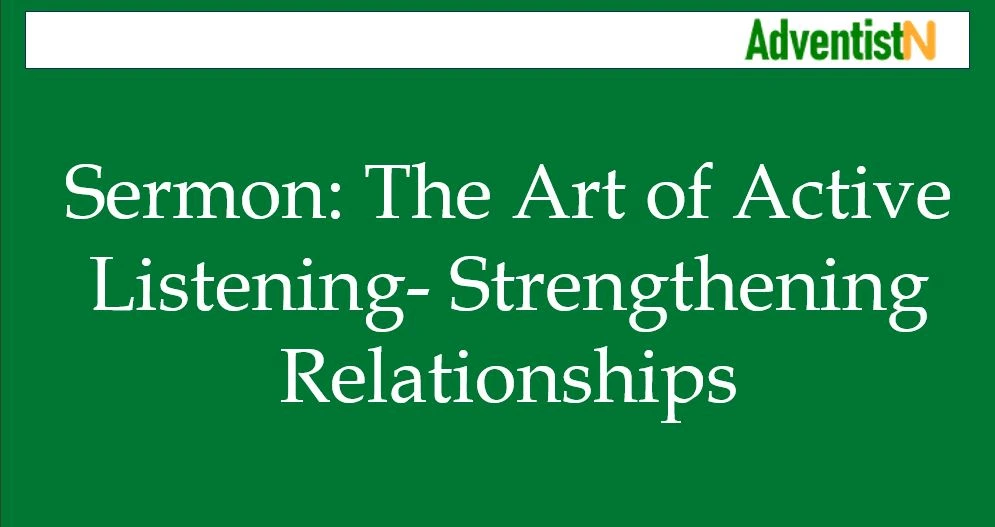
Introduction
Greetings, beloved congregation. Today, we gather to delve into the profound wisdom of the Scriptures and explore a topic that resonates deeply with the essence of genuine human connection – the art of active listening. In a world filled with noise and distractions, the practice of active listening is not only a valuable communication skill but also a way to honor and cherish the relationships we share. Let us journey together through the pages of the Bible to uncover the teachings that guide us in strengthening our bonds with one another through attentive and empathetic listening.
1. Understanding Active Listening
Active listening is not merely hearing words but truly understanding the heart behind them. As we seek to engage in meaningful relationships, let us remember the words of Proverbs 18:13, “To answer before listening – that is folly and shame.” This verse reminds us of the importance of patient listening before responding, as it demonstrates respect for the speaker’s thoughts and emotions.
2. Empathy and Compassion
The Bible teaches us the value of empathy and compassion in our interactions. Romans 12:15 encourages us to “Rejoice with those who rejoice; mourn with those who mourn.” This principle underscores the significance of not only hearing but entering into the emotions of others. By actively listening and sharing in their joys and sorrows, we forge bonds of understanding and care.
3. The Power of Silence
In the rush of words, we often overlook the power of silence. Ecclesiastes 3:7 tells us that there is “a time to be silent and a time to speak.” Active listening involves being attuned to these times – a moment of quiet support can sometimes speak volumes. As we absorb the words of others, let us remember that our presence is a form of validation and comfort.
4. Overcoming Assumptions and Judgments
James 1:19 guides us with the words, “Everyone should be quick to listen, slow to speak and slow to become angry.” Active listening requires us to suspend our assumptions and judgments, allowing space for understanding. By doing so, we create an environment of trust and open dialogue where relationships can flourish.
5. A Heart of Wisdom
Proverbs 1:5 reminds us that “let the wise listen and add to their learning.” When we practice active listening, we not only learn from others but also demonstrate humility. By seeking to understand different perspectives, we grow in wisdom and contribute to the mutual growth of those around us.
6. Listening to God’s Word
As followers of Christ, we recognize the importance of listening to God’s Word. Luke 8:21 emphasizes, “My mother and brothers are those who hear God’s word and put it into practice.” This principle extends to our relationships as well. By actively listening to others, we reflect Christ’s love and demonstrate our commitment to living out His teachings.
Conclusion:
Dear congregation, the art of active listening is a profound testament to our faith’s call for empathy, understanding, and love. As we journey through life, let us remember that our relationships are enriched when we truly engage in the act of listening. Let us heed the wisdom of Scripture – to be slow to speak, quick to listen, and generous in our compassion. By embracing the art of active listening, we strengthen our connections with one another and create a more harmonious and Christ-like world.
Read Also-Sermon: The Role of Faith in Overcoming Addiction

